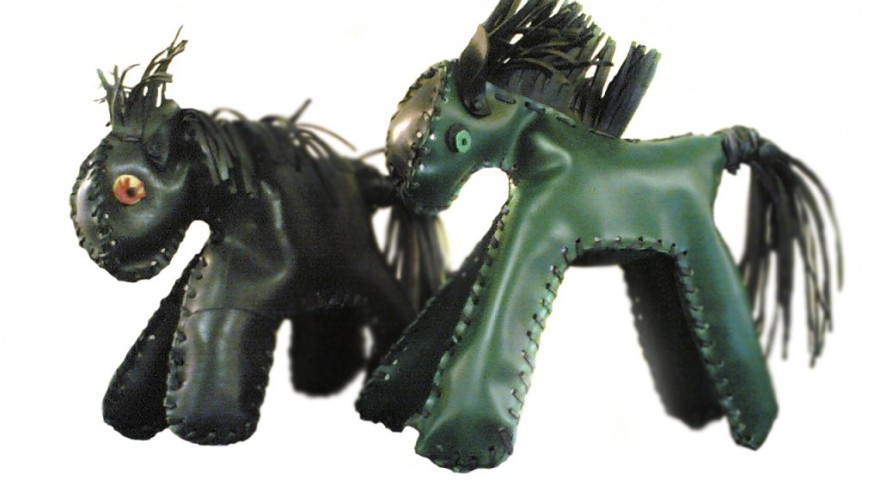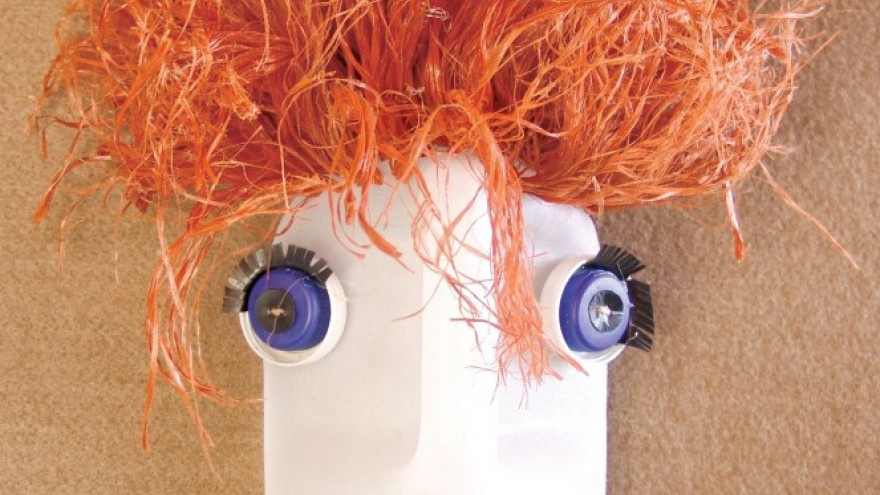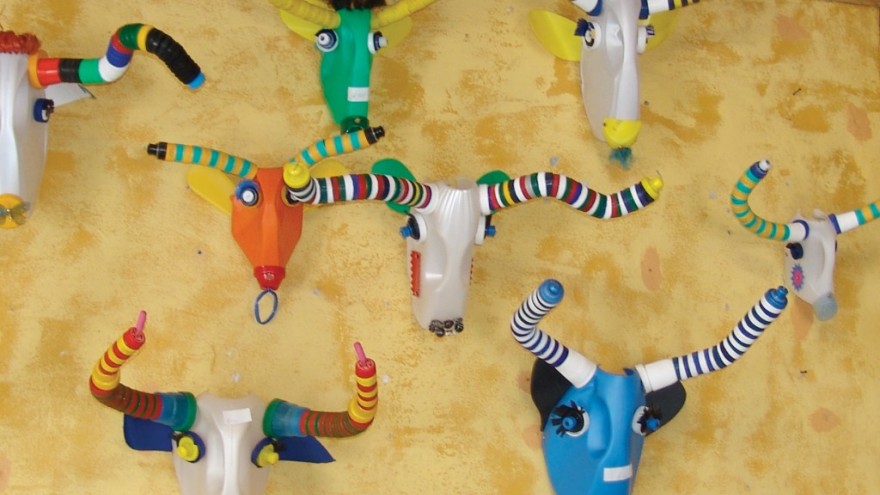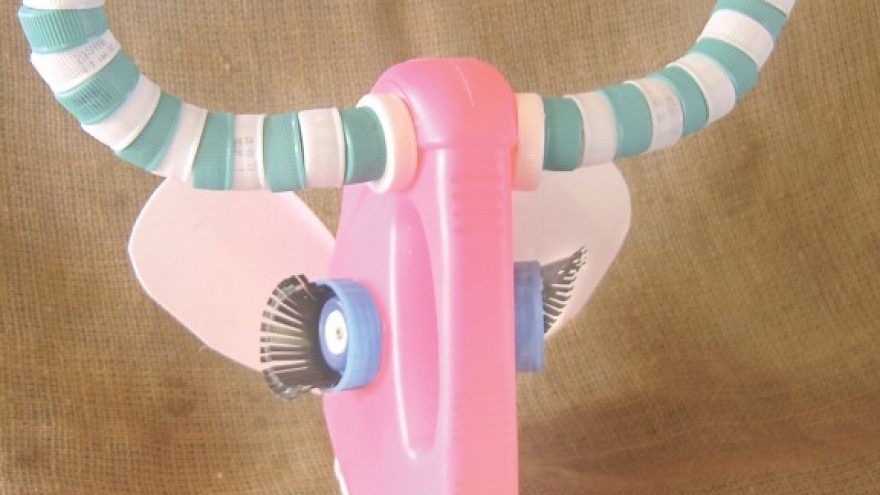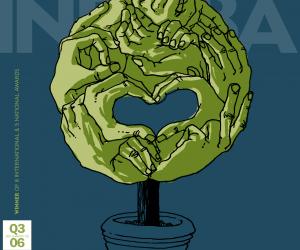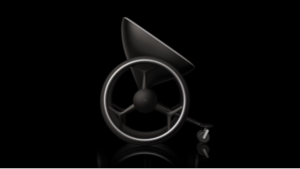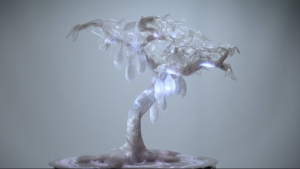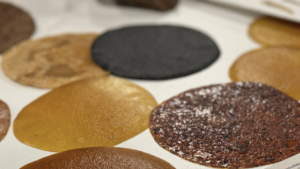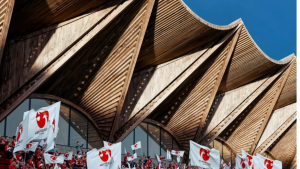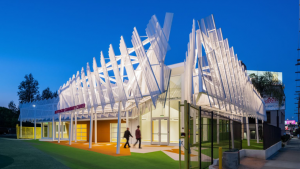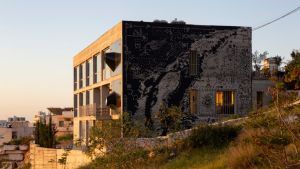First Published in
Wally: The Kommetjie Environmental Awareness Group manages a number of environmental projects on the southern Cape Peninsula. The largest of these projects is the Working for the Coast Project run in partnership with the Department of Environmental Affairs and Tourism. KEAG employs over 90 people in this project involving litter cleaning and maintenance work along the beaches between Chapman's Peak and Strandfontein pavilion.
Hundreds of bags of litter are removed from the beaches every month. What alarmed us was the large amount of non-recyclables collected, especially plastics. Due to the huge pressures we have on our landfill sites around Cape Town we decided to investigate the option of making crafts from the collected rubbish - but what could we make? Then on Scarborough beach our team came across local artist Monique Fagan.
Monique: When I first came across the KEAG beach cleaning teams, I thought: "Oh no!", as the rubbish on the beach had become a resource for me as I was making sculptures out of junk. Wally approached me with the idea of creating reproducible, functional and saleable products that his teams could make. We decided to set up a workshop with a number of the workers who expressed interest in the concept. Yandiswe Mazwane, at this stage one of the beach-cleaning supervisors, was chosen to run the project.
Yandiswa: It was very exciting for us to meet Monique at the workshop and to see the wonderful ideas she came up with for transforming junk into fascinating products. In these early days the project had identified six potential crafters, all of whom were excited by the idea of using the collected rubbish constructively.
Monique: I designed and made a number of prototypes using the most commonly found items, which proved to be plastic bottles and lids. Before the training started I liaised with Tracy Rushmore from the shop African Image, to assess whether these crafts would have a market. Tracy readily gave advice and the training workshops began. It is important, from a product-development point of view, that you have access to the resource and a clear idea of what you are going to do with the finished products.
Yandiswe: We realised the potential of this project when African Image bought the first crafts that we produced. It represented a wonderful way for us to supplement our income. We decided to call our group "Ilithalomsa" after the Xhosa word meaning a new dawn.
Wally: The name is apt in that not only have the crafters been given a new lease on life but so have the discarded pieces of rubbish. It is fascinating to watch how the various pieces of rubbish are transformed. Nothing goes to waste. We have turned plastic bottle tops into a precious resource. Our first workshops were sponsored by the Claremont Rotary Club and as the project grew it has at times also been subsidised by the Levi Strauss Foundation and the Western Cape Community Chest.
Yandiswe: The project now supports 16 people from the townships of Ocean View and Masiphumelele. We now have over 20 different products and we mostly work with a variety of plastics. It really is great fun. We sing and laugh as we work and even dance if someone drops off colourful plastic. People have stared collecting resources for us all over and this is recycling at its best. We really do enjoy our work. Most of us are uneducated and being part of this growing project makes us feel very professional, especially when people like our products.
Wally: The number of shops we supply has continued to grow. Moyo at Spier is now one of our biggest outlets. In this regard, Mare van Noordwyk has been a huge help. We have also exported our products to a market in Barcelona and a shop in Australia. On 17 May 2006 we officially opened our craft shop called Junk Evolution on Imhoff Gift Farm close to Kommetjie.
Monique: The items we make are carefully assessed in terms of labour and cost. We try to create a range of products. Some products are quick to make and can be sold cheaply, but we also try and make some "wow" products that showcase our potential.
Yandiswe: Earlier this year we had a stand at the Design Indaba Expo in Cape Town. This was a wonderful opportunity for us and from this exposure our project was filmed for the SABC programme Top Billing. The publicity that has spun off from the Design Indaba has meant that this winter we are going to be very busy. It is very exciting to be part of this growth, please visit our shop and see us at work.
Monique: Being involved with Ilithalomsa has been very satisfying. Remember to love what you do or do some-thing else.

